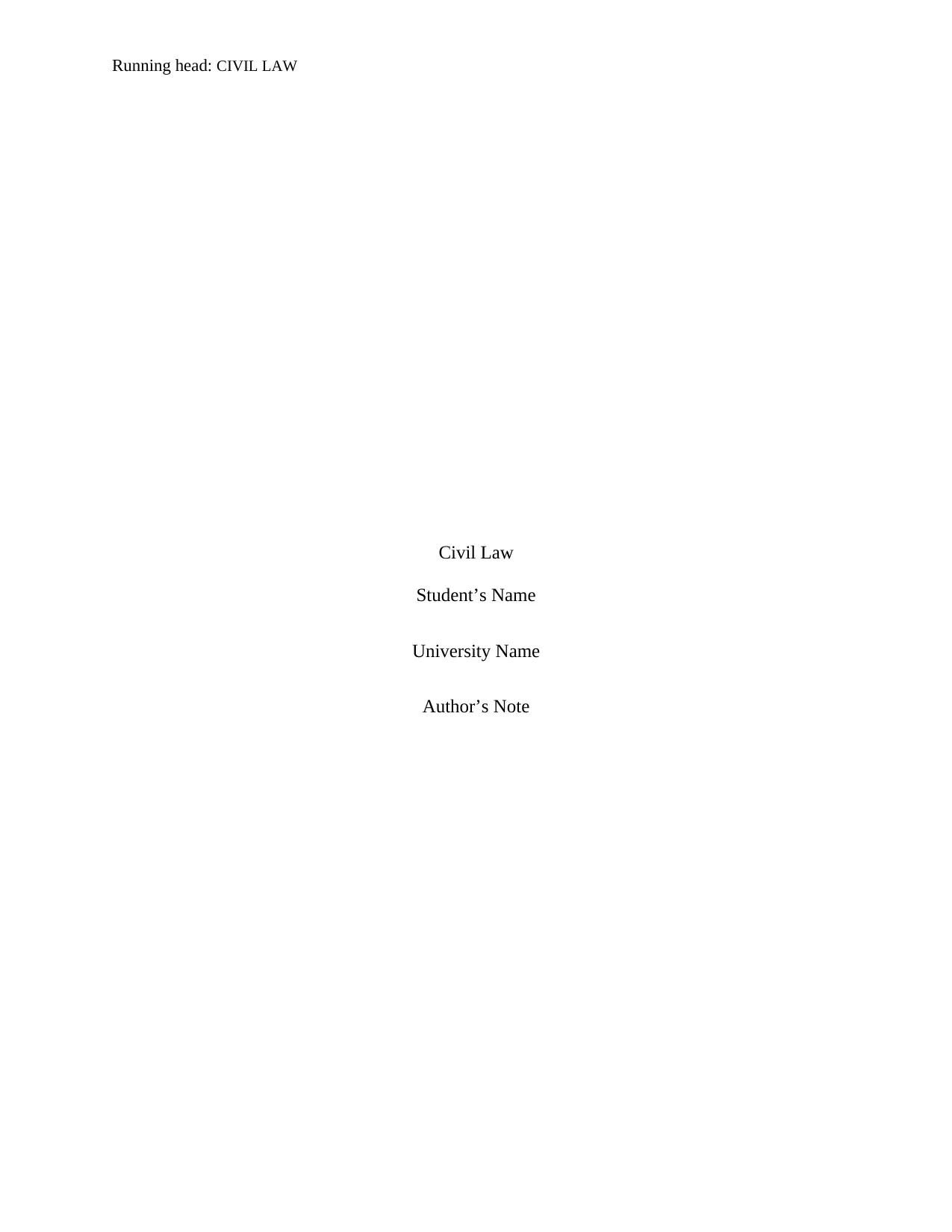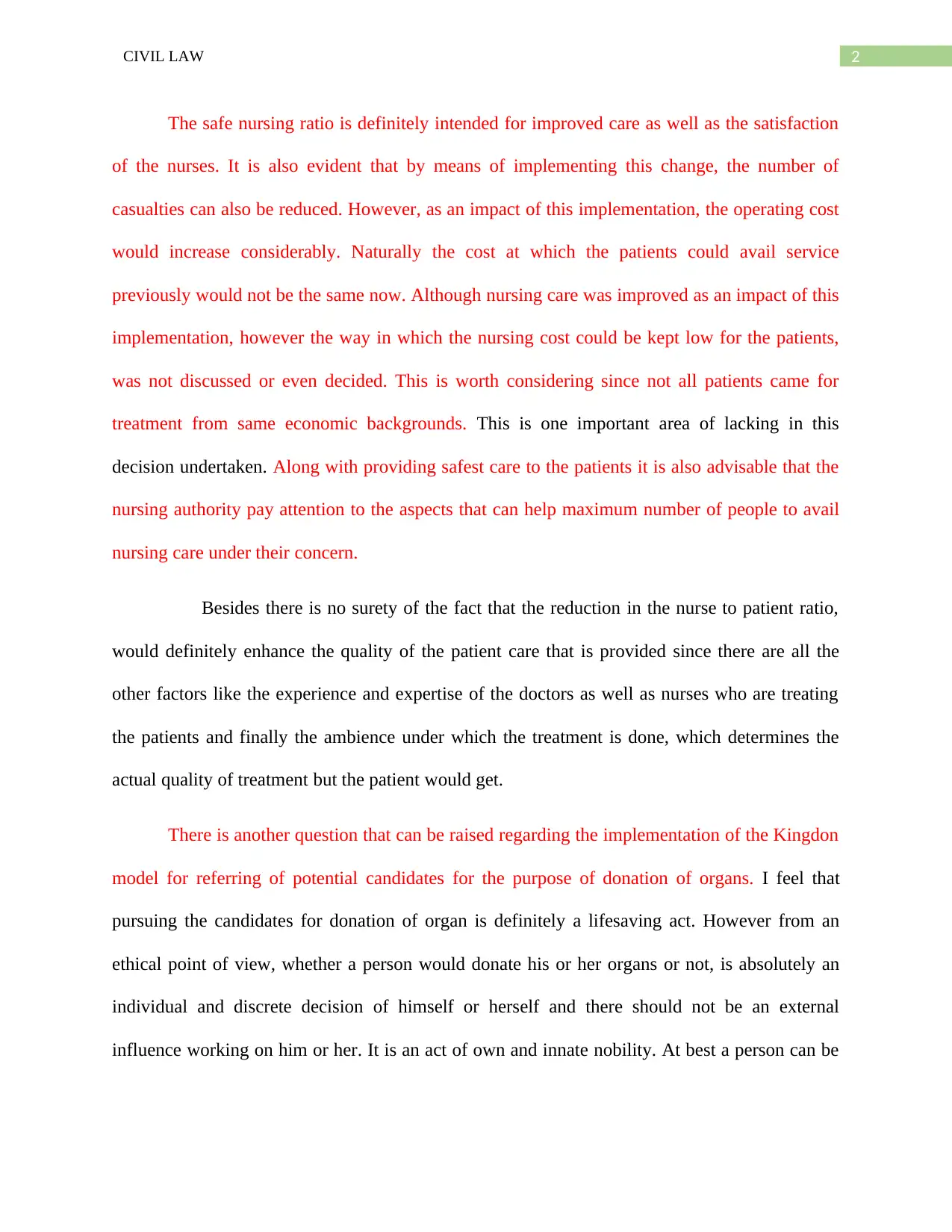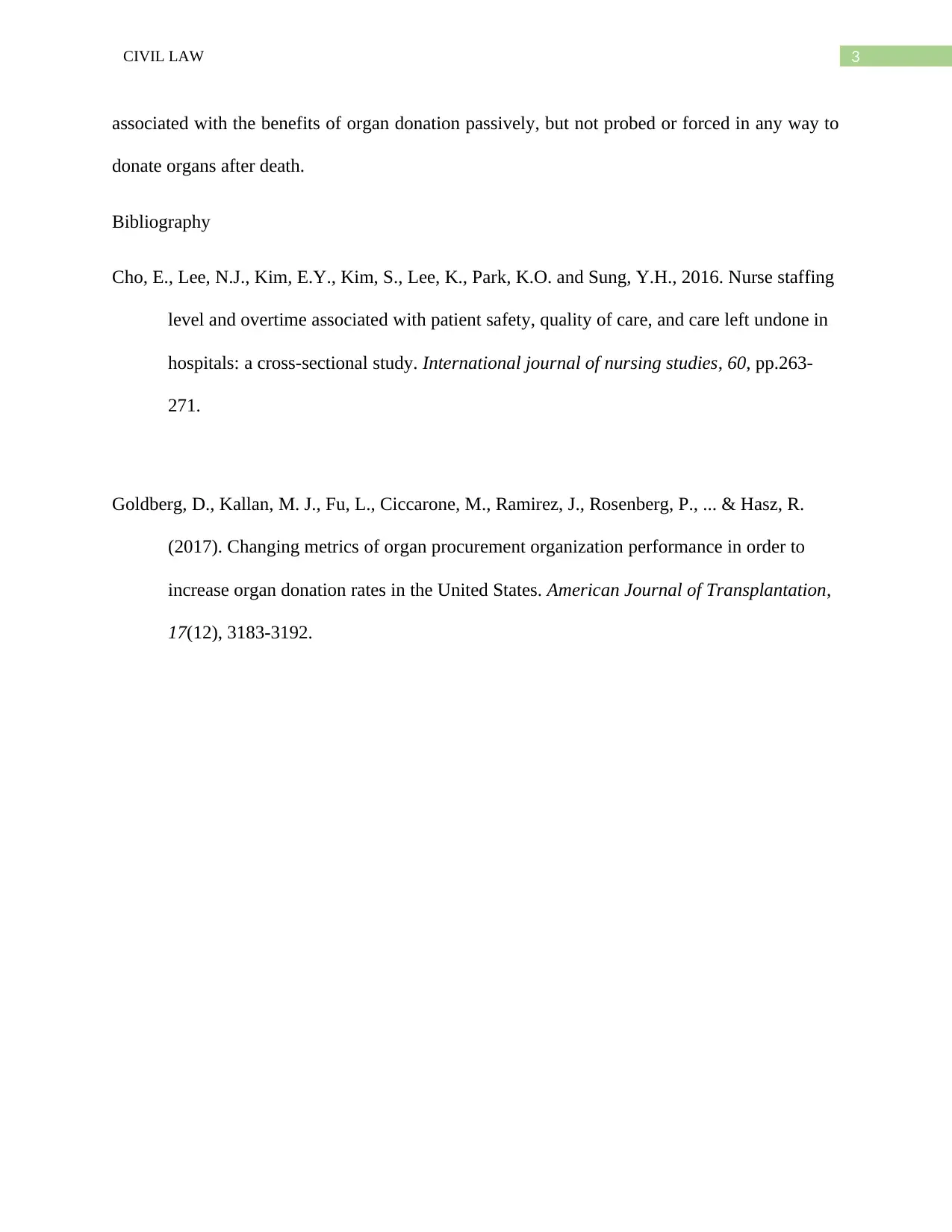Civil Law Essay: Analysis of Safe Nursing Ratios and Organ Donation
VerifiedAdded on 2023/04/22
|3
|534
|272
Essay
AI Summary
This essay provides a civil law analysis of two key healthcare issues: safe nursing ratios and ethical considerations surrounding organ donation. It discusses the implementation of safe nursing ratios, highlighting the potential for improved patient care and nurse satisfaction while also addressing the economic implications and questioning whether reduced ratios definitively enhance care quality. The essay also explores the ethical dimensions of organ donation, particularly regarding the use of the Kingdon model for candidate referral, arguing that while organ donation is a lifesaving act, individual autonomy and the avoidance of external pressure are paramount. The essay concludes by emphasizing the importance of balancing patient safety and ethical considerations within the framework of civil law. Desklib offers a platform to access this essay and numerous other resources for students.
1 out of 3










![[object Object]](/_next/static/media/star-bottom.7253800d.svg)